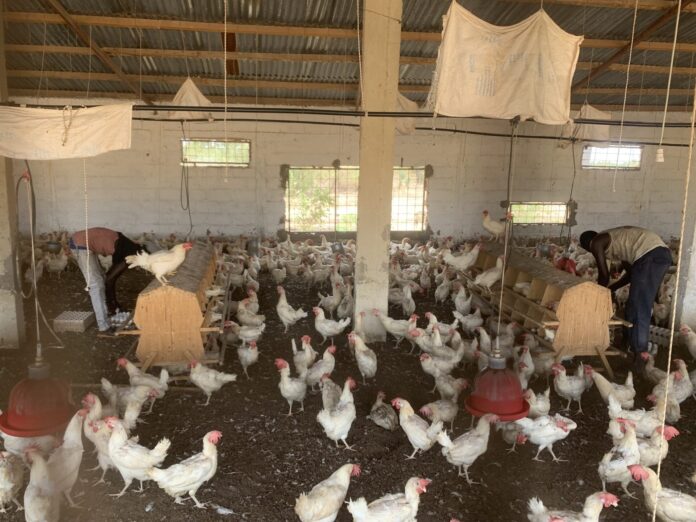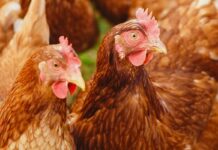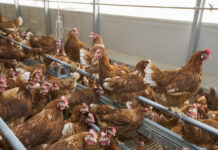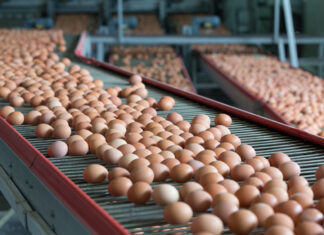
Senegal’s table egg market has received a major boost after a subsidiary of French Development Agency (AFD) announced new financing for a leading egg producer in a drive to improve food security and expand commercial poultry production in the West African country.
Société de Promotion et de Participation pour la Coopération Economique (PROPARCO), in which AFD holds an 85.21% stake, says it has granted Gade Gui €4 million (USD 4.6 million) in long-term structured loan “for the construction and operation of a laying hen farm (growing, laying, sorting, and packaging) that will eventually produce over 80 million high-quality eggs.”
Proparco, which terms the new funding a ‘first direct transaction’ with a Small and Medium-sized Enterprise (SME) in West Africa, has entered the Senegal poultry market when farmers, including egg producers such as Gade Gui, are grappling with inadequate financing or lack of access to credit, according to previous reports.
Proparco said the new credit facility for Gade Gui would help Senegal expand its table egg production capacity, especially “in a context of demographic growth and rapid urbanization, ensuring access to affordable and high-quality animal protein is a key factor for food security”.
Gade Gui’s President Adama Sène Cissé said the new partnership with Proparco will contribute to an increase in Senegal’s egg production and hence promote the country’s food security.
“Gade Gui has demonstrated its ability to operate according to the highest international standards and reaffirms its daily commitment to providing quality food products to Senegalese consumers while creating jobs” she said.
According to a previous study on the Senegalese poultry value chain by the Netherlands Enterprise Agency, poultry farmers in Senegal “are unaware of available financing products” especially those offered by commercial lenders such as banks.
“They (farmers n.d.) also have a tendency to rely on private financing from friends, neighbours and family rather than the formal lending”, with a recent study suggesting that only 3% of Senegalese get credit from the formal sector” the study adds.
“This gap in awareness of financing and its associated costs versus benefits has resulted in a low uptake rate of available financing products limiting the potential of farmers to expand production, either through increasing the number of production cycles per year, or the size of the flock per cycle, which is important to get traders interested” it said.
Proparco’s partnership with Gade Gui comes nearly six months after after the World Bank’s International Finance Corporation (IFC) announced a €4.7 million (USD 5.4 million) partnership with L’Africaine de Production Animale (APRAN), a local poultry company for the expansion of its integrated facility including a feed, breeder and broiler operation in Senegal.
“This integrated approach will help meet Senegal’s growing demand for poultry, and increase the availability of affordable, protein-rich food for consumers” IFC added.
IFC explained APRAN’s integrated poultry project would create at least 1,600 jobs “across Senegal’s poultry value chain and is expected to reach more than 2,300 smallholder farmers by 2029, including 1,400 women, through access to day-old chicks, veterinary services, technical training, and affordable feed.”
Other key poultry market players in Senegal include Angel Eggs BV, a Dutch egg exporter, Sedima, Avi Boye and Jailaxmi. The latter three firms are said to compete for approximately 82% of the market.
Although there are no precise statistics on current egg production in Senegal, a country with an estimated population of 18.8 million people and a real gross domestic product value of USD 83.183 billion, some reports indicate growth in production and consumption.
For instance the US Department of Agriculture (USDA) estimates table egg production in Senegal to have reached 850 million, of which 60% was produced by commercial poultry farms, while 40% is accounted for by smaller farms/informal operations.
Fresh eggs and egg products destined for domestic consumption market are among the products the government of Senegal listed under banned imports since 2005 initially to prevent the spread of the highly pathogenic avian influenza (HPAI). Other banned imports include chick meat, uncooked poultry meat and poultry cuts.
However, market reports indicate day-old chicks for breeding and eggs for hatching along with a health certificate and a certificate of origin can be imported, a business dominated by West Africa-based specialist in animal health and feed, Afitex as well as InvervoLife.
Afitex says on its profile page: “from our base in Brazil, we organize our logistics by air transport, so that you will receive your hatching eggs and day-old chicks in optimal transport and storage conditions”.
Access to long-term financing from international lenders in support of Senegal’s private sector investment in the poultry sub-sector would likely improve the country’s egg production, consumption levels, processing capability and the country’s food security.
Sources
https://www.proparco.fr/en/news/senegal-gade-gui-launches-table-egg-production-support-proparco
https://www.rvo.nl/files/file/2021/02/Senegal-Value-Chain-Study-Poultry.pdf

















